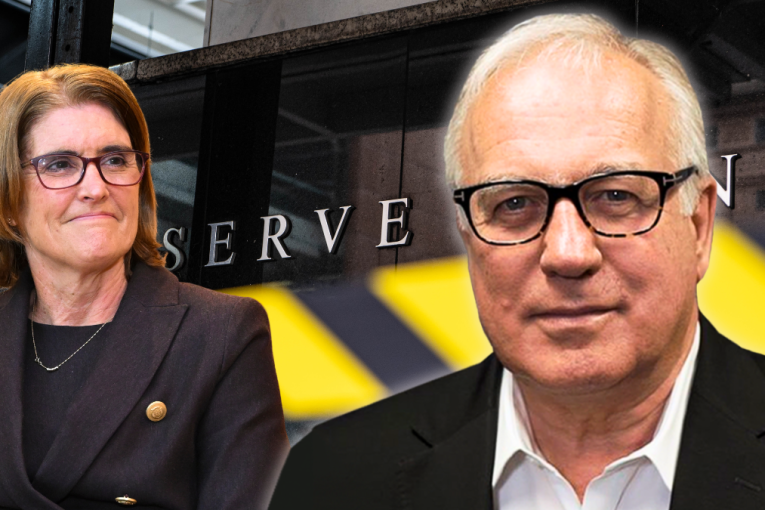Five personal finance myths and how to avoid getting hoodwinked


Personal finance is full of myths that are treated like gospel truths. Photo: TND
There are as many personal finance theories about getting rich as there are dollars on the earth.
But most of them are unhelpful as they fail to take into account your personal needs and circumstances.
To be sure, there are nuggets of wisdom contained within some. But none should be treated as gospel and adhered to blindly regardless of your individual situation.
Here are five personal finance myths that make the experts roll their eyes.
Myth one: Saving is good and spending is bad
On the face of it, this piece of advice seems completely uncontroversial. Getting your finances in order comes down to holding onto as much of your income as possible, right?
Well, yes and no.
“If your strategy is just to save your money and let it sit in a bank account for the medium or long term, this will actually end up losing you money,” Montara Wealth managing director David Hancock said.
“Our money needs to grow faster than inflation at an absolute minimum. With record-low interest rates, the interest earned on money in a savings account is next to nothing.”
And so you need to make sure that your savings are generating strong enough returns to be useful for important things later on in life, like retirement.
Fail to do that, and your good savings habits might amount to very little.
Learn more about saving smart and investing well:
Myth two: Properties always make good investments
Investment properties are incredibly popular in Australia, with about one in five households owning one, according to Australian Taxation Office data.
But they come with more risks and ongoing costs than many people realise.
“It’s a lot of risk concentrated in one asset – there’s no diversification,” said Jacie Taylor, an independent financial adviser at Periapt Advisory.
“If you buy in a suburb that’s stagnant in growth, you’re not going to be able to make the money you’re expecting.
“[It’s also] illiquid, so you can’t always sell it for what it’s worth.”
Ms Taylor said savers should consider a broad range of investments and remember to factor in costs like stamp duty and maintenance when doing the numbers on a potential investment property.
Story Wealth financial planner Sarah Leslie also warned budding investors not to be lured by the apparent benefits of negative gearing.
“The reality is it’s costing you money and potentially leaving you out of pocket from a cashflow perspective even after the tax benefits,” she said.
“Although paying tax on a positively geared property might be a hard pill to swallow, having a positive cashflow year on year as well as the upside from any growth can really impact your other wealth-creation strategies for the better.”
Learn more about investment properties and negative gearing:
- Selling investment properties and contributing to super
- Negative gearing (and the debate) explained.
Myth three: Only the rich can obtain passive incomes
Ms Taylor said it’s a common misconception that investing to obtain a passive income is something only millionaires or home owners can do.
In fact, investing in shares is becoming more popular among those saving for a home as property prices continue to soar in Australia.
And many types of shares will pay out regular dividends.
“If you’re in defensive assets (eg. bonds or cash), there will usually need to be a large amount of capital invested,” Ms Taylor said.
“But if you are invested more aggressively, then smaller amounts of capital can deliver higher returns.”
Metric Wealth founder Martin Tuttlebee said investing in shares doesn’t have to be overly risky either, as there are plenty of funds offering diversified investment options.
“There has been no 20-year period in history where the stockmarket has lost money for those who have broadly diversified across it,” he said.
Learn more about investing and how to diversify:
- Exchange-traded funds explained: An option for new investors
- Interested in crypto? Here are some Bitcoin alternatives.
Myth four: Financially successful people avoid credit
There’s no denying that debts can destroy your financial health.
But this shouldn’t be a reason to avoid credit altogether though, according to Mr Hancock.
After all, the biggest purchase most people make (their house) is almost always underpinned by a loan.
“Some people use credit cards really efficiently. They utilise points [and] it can be great,” Mr Hancock said.
“For other people, credit cards are just a mechanism to overspend.”
Mr Hancock and Ms Taylor said the distinction between good and bad debt comes down to your spending intentions.
Going into debt to invest and build your wealth can be a great idea, but if you’re making lifestyle purchases with money you don’t have, it can easily turn bad.
“Borrowing money to get ahead financially, like borrowing money to invest in shares or property, can be quite good,” Ms Taylor said.
Learn more about using credit well and finding the best deal:
- How to pay down credit card debt and get a better deal
- The latest moves in buy now pay later explained.
Myth five: Offset accounts create easy home loan reductions
Some mortgages offer offset accounts that can reduce the interest you pay on your home loan.
One popular strategy is to direct your pay into an offset account and let it sit there while using a credit card to fund daily expenses.
It sounds like a good idea on paper.
But Sort Your Money founder David Rankin said many people fall into debt traps as a result.
“In reality, this piece of advice turns out to be a debt trap for most people, as they end up losing control of their spending,” he told TND.
Ms Taylor said credit can be beneficial alongside an offset account, but only if used correctly and in tandem with precise spending calculations.
“The problem comes when you miscalculate or something goes wrong with paying off the credit card,” Ms Taylor said.
“Suddenly, you’re paying interest right from the first day of purchase, not just the 56th day.”
Ms Taylor also noted that home loans that offer offset accounts can have higher interest rates than those without extra services.
That means you end up paying either way.
Learn more about offset accounts and the best home loans:








